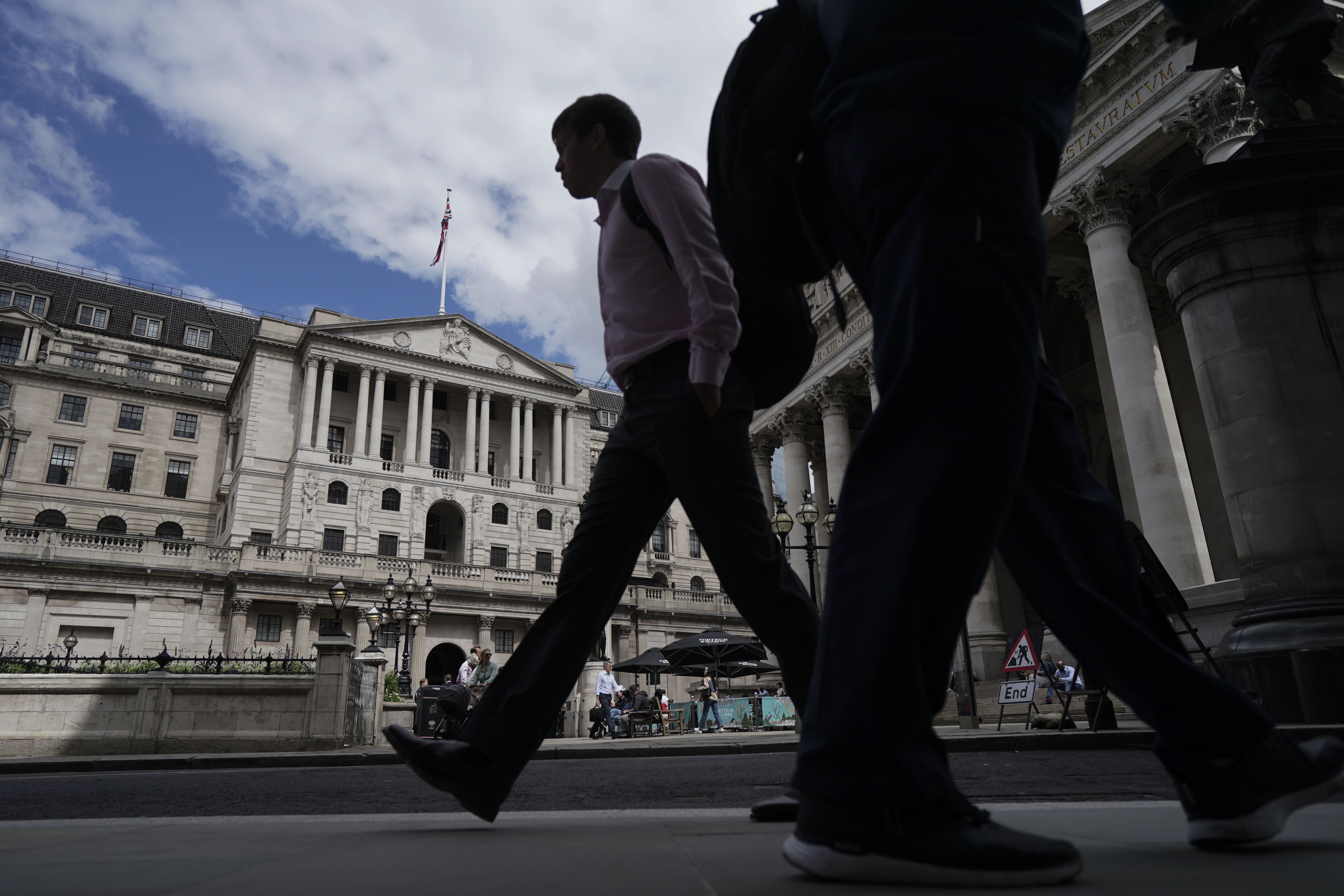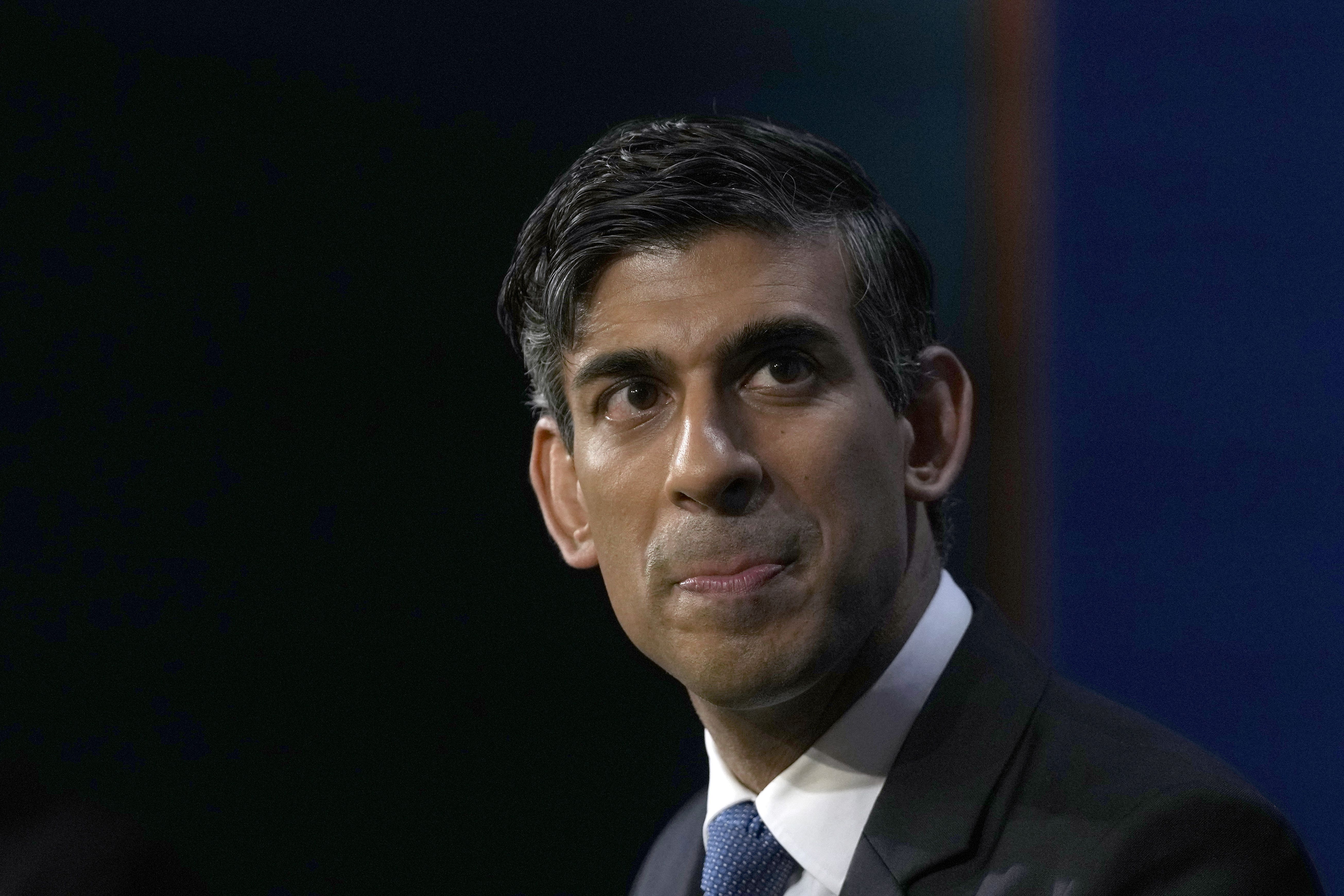UK inflation falls 1.1% in just one month as Ukraine war energy price crisis starts to ease
CPI inflation now stands at 6.8% after a fall in energy prices
Your support helps us to tell the story
From reproductive rights to climate change to Big Tech, The Independent is on the ground when the story is developing. Whether it's investigating the financials of Elon Musk's pro-Trump PAC or producing our latest documentary, 'The A Word', which shines a light on the American women fighting for reproductive rights, we know how important it is to parse out the facts from the messaging.
At such a critical moment in US history, we need reporters on the ground. Your donation allows us to keep sending journalists to speak to both sides of the story.
The Independent is trusted by Americans across the entire political spectrum. And unlike many other quality news outlets, we choose not to lock Americans out of our reporting and analysis with paywalls. We believe quality journalism should be available to everyone, paid for by those who can afford it.
Your support makes all the difference.UK price inflation fell 1.1 per cent in a month to approach levels not seen since Russia’s invasion of Ukraine in February 2022, but experts warned the cost of living squeeze was far from over despite the turning ride on rising prices.
Office for National Statistics data published on Wednesday morning showed the Consumer Prices Index (CPI) stood at 6.8 per cent in July – down from 7.9 per cent in the previous month and broadly in line with what most economists had predicted. The drop was attributed to falling energy prices.
Rising prices have slowed for two consecutive months and are now being outstripped by record wage growth. But core inflation – which takes out volatile food and energy prices – remained unchanged at 6.9 per cent and experts warned any gains in pay would be “swallowed up” by increased borrowing costs and higher taxes.
Bank of England policymakers are expected to further hike the base rate when they meet again in September, piling further misery on some mortgage holders and those taking out loans. Dr Sushil Wadhwani, a former member of the Bank’s Monetary Policy Committee, on Tuesday predicted a rise of 0.25 per cent to 5.5 per cent.
Sky-high gas and electricity costs, fuelled by Russia’s invasion of Ukraine, have begun to come down as Western countries get a better grip on their energy policies. In the UK, from the start of July, the average price for each unit of electricity that someone uses was slashed to 30p per unit, while gas prices fell to 8p per unit, meaning the average annual energy bill for a household dropped to £2,074 from the capped rate of £2,500.
Matthew Corder, ONS deputy director of prices, said the fall in the energy price cap had helped to bring down bills. He added that, while food price inflation remains high, it had eased slightly, particularly for everyday staples such as bread, milk and cereal. But he said that the “falling cost of goods [were] offset by higher service prices.”
Analysts welcomed the inflation figures and said they showed that the tide was “turning” on inflation but warned there was still a long way to go in tackling the cost of living squeeze, echoing previous comments by chancellor Jeremy Hunt.
Jason Hollands, managing director at investing platform Bestinvest, said the July figures represented “a big move down” on the previous month’s data “however core inflation … is proving much stickier”.
He added that Wednesday’s figures “will undoubtedly” be touted by the government as evidence that their “fiscal prudence is working … however, inflation still has some way to go before it returns to the Bank of England’s long-term target rate of 2 per cent, so the fight against inflation is not yet over”.

The Institute of Chartered Accountants in England and Wales (ICAEW) said it was “positive” that pay was outstripping inflation but warned the economic picture for many families across the country remained difficult.
“It’s encouraging that pay is outpacing price growth, but any financial boost is likely to be swallowed up by higher taxes, borrowing costs and rent, so for most people this won’t feel like a turning point in the cost-of-living crisis,” Suren Thiru, ICAEW economics director, said.
Ms Thiru added that while another Bank of England interest rate rise in September looks “inescapable”, the drop in inflation for June is likely to drive a more notable split among the central bank’s policy-makers.
Prime minister Rishi Sunak earlier this year outlined his five priorities for government, which included a promise to halve inflation to around 5.3 per cent by the end of the year. Inflation was at 10.7 per cent when Mr Sunak made his pledge and he has made bringing it down his number one objective since entering office in October last year.
The Institute for Fiscal Studies think tank said July’s figures suggest the pledge is now hanging by a thread as there is “only so much” the Treasury can do to bring down inflation. “When the target was set, the prime minister may have hoped he could rely on falling in energy prices to do most of the work to hit it,” Heidi Karjalainen, IFS research economist said.

“However, the stubbornly high rate of price inflation for goods and services other than food and energy has put the target in jeopardy. With only four months to go, it no longer seems at all clear that inflation at the end of the year will have fallen by enough to achieve it.”
Speaking to broadcasters after the inflation figures were published, John Glen, the Treasury minister and a close ally of the PM, refused to be drawn on whether or not his boss would hit the target and cautioned that “a lot has changed since the start of the year”.
He insisted that the government was not complacent about bringing down inflation and suggested that economists’ predictions that the UK was no longer heading for a recession showed that the economy was heading in the right direction.
Labour welcomed the fall in inflation but used the figures to attack the government’s record on the economy, pointing out that the UK still has a higher rate of rising prices than “many other” major economies in the G7.
"After 13 years of economic chaos and incompetence under the Conservatives, working people are worse off - with higher energy bills and prices in the shops,” Rachel Reeves, the shadow chancellor, said. “Labour’s plan to build a strong economy will make working people better off by boosting growth, improving living standards and cutting household bills."
Mr Hunt said the figures showed "the decisive action we’ve taken to tackle inflation is working" but "we’re not at the finish line". "We must stick to our plan to halve inflation this year and get it back to the 2 per cent target as soon as possible," he added.




Join our commenting forum
Join thought-provoking conversations, follow other Independent readers and see their replies
Comments